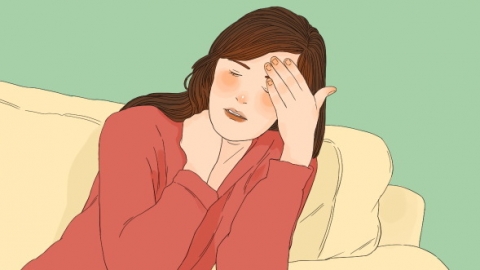What causes female sexual indifference (low libido)?
Generally, female sexual indifference may be caused by hormonal changes, excessive psychological stress, vaginitis, ovarian function decline, depression, and other factors. It is recommended to seek medical advice promptly, identify the underlying cause, and receive symptomatic treatment under a doctor's guidance. Specific analysis is as follows:

1. Hormonal changes: During pregnancy, menopause, or due to contraceptive use, fluctuations in estrogen and progesterone levels can reduce sexual desire. Maintain regular sleep patterns and avoid staying up late. Increase intake of foods rich in phytoestrogens such as soy products and royal jelly. Consult a doctor when necessary to adjust hormone levels.
2. Excessive psychological stress: Busy work schedules, household responsibilities, or emotional conflicts can create heavy mental burdens that affect sexual interest. Communicate openly with your partner, share responsibilities, and set aside dedicated time each week for quality connection to strengthen emotional bonds.
3. Vaginitis: Infections caused by bacteria or fungi may lead to vaginal itching and pain, increasing discomfort during intercourse and resulting in sexual disinterest. Follow medical advice to use medications such as metronidazole suppositories, clotrimazole vaginal tablets, or nifuratel-nystatin vaginal soft capsules. Avoid sexual activity during treatment.
4. Ovarian function decline: Reduced hormone secretion by the ovaries can lead to decreased libido and vaginal dryness. Follow a doctor’s instructions to use medications such as estradiol valerate tablets, conjugated estrogens tablets, or progesterone capsules to regulate hormone levels and relieve symptoms.
5. Depression: Core symptoms such as low mood and loss of interest can significantly impair sexual function. Medications like sertraline hydrochloride tablets, fluoxetine hydrochloride capsules, or fluvoxamine maleate tablets may be used under medical supervision, along with professional psychotherapy.
In daily life, maintain good genital hygiene while avoiding over-cleaning, which could disrupt the natural vaginal flora. Engage in moderate exercises such as yoga or jogging to improve physical health and emotional well-being. Partners should offer understanding and support to help create a relaxed and intimate environment.




